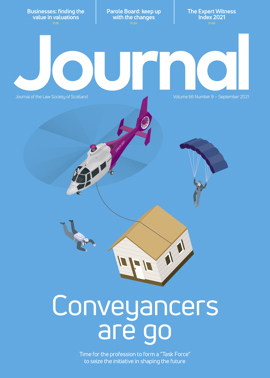Mobility challenges – and the kindness of strangers
 I have a very sore leg. A different very sore leg ceased being sore when I had a first hip replacement, in late 2020. I hope to cease having sore legs when I have a second hip replacement and become slightly less Barr and slightly more ceramic and steel. I look forward to setting off airport alarm systems, when that becomes more of a possibility.
I have a very sore leg. A different very sore leg ceased being sore when I had a first hip replacement, in late 2020. I hope to cease having sore legs when I have a second hip replacement and become slightly less Barr and slightly more ceramic and steel. I look forward to setting off airport alarm systems, when that becomes more of a possibility.
So, I am not “out of action” by any means. However, I am pretty certain that I am, in legal terms “disabled” – albeit in a relatively minor, and hopefully, temporary way.
That view follows from this definition: “A person (P) has a disability if – (a) P has a physical or mental impairment, and (b) the impairment has a substantial and long-term adverse effect on P’s ability to carry out normal day-to-day activities.” (Equality Act 2010, s 6(1); and see the online guidance on matters to be taken into account).
For now, I find I am that P. I count my blessings at how little I have generally suffered from illness through my life. And I emphasise that I know that what I am suffering now pales to insignificance when compared to so many others. But I have had the merest hint of what it is like to be more disabled and permanently so; and what I would want to change when I have the good fortune to become less so.
Still capable!
There have been negative, and perhaps more surprisingly positive, aspects to this experience. On the negative side has been the slowness that constant pain has brought, including to some extent in the ability to get things done. I don’t think I do things any less well – just a bit more slowly.
Coupled with this is an impression that for some people, physical disability equates to mental incapacity. How can the man with the stick possibly tackle hard legal issues? The answer is, I think, quite well actually. I have been spoiled by most meetings taking place recently in an environment where sore legs (or indeed the possible absence of trousers) have not been evident in the box on the screen.
So I have had a small inkling of what I believe quite commonly befalls those who use a wheelchair – encapsulated in that brilliantly titled radio programme, Does He Take Sugar? Accompanied throughout by my wife, questions have been directed to her which a sore leg would not have precluded me from answering for myself.
I have fortunately remained able to drive, but various encounters with public transport have shown me the problem of high steps. On the London Underground step-free access is a rare privilege, and involves many, many yards of corridor – not convenient when one is still on hobbling legs and not in a wheelchair.
Kindness counts
A recent concert brought both sides of my picture into sharp focus. Front row seats bought early; an assumption (indeed instruction) to remain seated, only for the star performer to encourage the audience to stand up, come to the front – and thus obviate entirely the benefit of those seats. So off we grumbled, only to be scooped up by a kind bouncer and given special seats behind the stage barrier.
This is emblematic of a positive very clearly seen from my current position – the kindness of strangers. Almost universally, people have looked out for me – springing out of bus seats, ushering me through queues, seizing heavy baggage. Any lingering thought of being patronised or imposing on others is far outweighed by things being made that little bit easier. When I can again, I hope I will always offer assistance.
“You’re going to be extra nice to disabled people when you get your old life back,” I hear you say. “Big of you.” Let me be clear: I’m not suggesting that relying on helpful strangers should in any way be an alternative to robust law, properly observed and enforced, to protect and enhance the basic right to independent and equal access to all parts of society.
But this experience has undoubtedly opened my eyes and dispelled some, perhaps lazy, assumptions. The old saying is before you judge a person, walk a mile in their shoes. I cannot actually walk that mile now, but a few months of hirpling in my own shoes has given me new insights into being even slightly disabled. I very much hope to revert from being disabled and old to just being (quite) old. I will resolve to do my very best to avoid clichéd views about those with disabilities. And yes, to be a bit more kind.
Regulars
Perspectives
Features
Briefings
- Civil court: Legacy of COVID
- Corporate: The enigma of economic duress
- Employment: where will work be found?
- Intellectual property: David v Goliath battle continues
- Agriculture: Crofting disputes: some first principles
- Sport: Arbitration – within the rules?
- Property: ADS: the hidden traps
- In-house: On harm, stakeholders and risk management
In practice
- Ask Ash: Colleague's chat is my privacy
- Lockdown no more
- The Word of Gold: The potency of passion
- Get interactive at the Law and Technology Conference
- Ten red flags for conveyancers
- The Eternal Optimist: So, what do you want to be?
- Commissary: the top 10 failings
- Mobility challenges – and the kindness of strangers
- When all is remote







